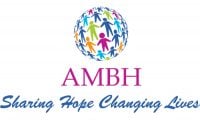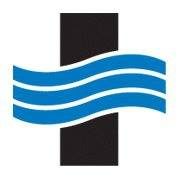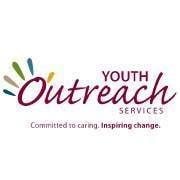Advocate Lutheran General Hospital - Behavioral Health Services
Drug Rehab Center in Park Ridge, Illinois
- Mental Health
- Dual Diagnosis
Lutheran General Hospital - Behavioral Health Services provides comprehensive Dual Diagnosis treatment for substance use and mental health issues using evidence-based therapeutic approaches such as CBT, DBT and Trauma-Informed Care, with private health insurance accepted for accessibility.
About This Illinois Facility
Advocate Lutheran General Hospital - Behavioral Health Services is an addiction treatment facility located in Park Ridge, Illinois. They specialize in addressing the needs of individuals with mental health disorders, substance abuse issues, and dual diagnosis conditions. With a team of experienced professionals, they offer a comprehensive range of treatment options including inpatient and outpatient levels of care. The facility is equipped to handle individuals seeking help for drug addiction, alcohol addiction, and co-occurring mental health disorders. Advocate Lutheran General Hospital - Behavioral Health Services accepts private health insurance, making it accessible for individuals looking for quality treatment options.
At Advocate Lutheran General Hospital - Behavioral Health Services, individuals struggling with addiction and substance abuse can find a wide range of services tailored to meet their needs. The facility offers both inpatient and outpatient treatment programs, allowing individuals to choose the level of care that suits them best. Through their inpatient program, patients can receive intensive care and support in a structured environment, with 24/7 medical supervision and access to various therapies. The outpatient program offers flexibility for those who want to continue their daily routines while receiving treatment. Additionally, Advocate Lutheran General Hospital - Behavioral Health Services specializes in dual-diagnosis treatment, addressing both mental health disorders and substance abuse simultaneously. This integrated approach ensures that individuals receive comprehensive care to achieve long-term recovery.
Genders
Ages
Modality
Additional
Conditions and Issues Treated
Dual Diagnosis refers to someone who is both dealing with addiction and another mental health issue.
There are different kinds of Dual Diagnosis: A person who simultaneously experiences both a mental illness and an addiction disorder. Or, a person who experiences one or more coexisting (simultaneous) mental health conditions in addition to a primary substance use disorder.
Some conditions that commonly co-occur with addiction include:
- Personality Disorders (Borderline, Narcissistic)
- Mood Disorders (Bipolar Disorder, Depression, Anxiety Disorder)
- PTSD (Post Traumatic Stress Disorder), OCD (Obsessive Compulsive Disorder), ADHD (Attention Deficit Hyperactivity Disorder)
- Schizophrenia, Psychosis, Hallucinations, Delusions
Levels of Care Offered at Advocate Lutheran General Hospital - Behavioral Health Services
This center offers a variety of custom treatment tailored to individual recovery. Currently available are Dual-Diagnosis, Inpatient, Outpatient, with additional therapies available as listed below.
Individuals who are suffering from severe addiction or have a high risk for dangerous health concerns are often recommended to receive inpatient treatment.
Choosing to enter an inpatient treatment program is beneficial for people who are suffering from severe addiction, or who have a high risk for dangerous health concerns.
Inpatient treatment is beneficial for:
- People who have a history of severe withdrawal.
- People who have attempted to overcome addiction on their own without success.
- People who have a history of relapse, or have recently relapsed.
- People at risk for drug overdose or withdrawal-related complications.
- People with medical conditions that are worsened by drug or alcohol use.
Outpatient treatment programs provide drug and alcohol addiction treatment through individual sessions with a counselor, group therapy, 12-step meetings, and other activities to help individuals gain sober living skills. Most programs are designed for those individuals who have completed a medically supervised detoxification program and provide opportunities for clients to begin the process of early recovery.
Outpatient programs also offer a level of medical support as needed and psychological backing through therapy. Clients are encouraged to live at home, though there may be some flexibility regarding this requirement based on the circumstances and needs of each patient.
Outpatient treatment is perhaps the most common type of dual diagnosis program available. It does not pose a significant financial burden on patients. However, it is essential to note that outpatient treatment does not provide the support and supervision given in residential programs. Some addicts may need this level of support to maintain their sobriety.
Therapies & Programs
Therapy sessions focused on the individual addict can provide much-needed guidance as they work toward overcoming their addiction. These types of sessions typically involve guidance from a therapist, who will help addicts identify and process their feelings and cravings.
During these sessions, addicts may develop plans for coping with the triggers that typically lead to relapse and learn how to avoid those triggers during their recovery process.
Different types of addiction treatment services are available. Within this article, group therapy is of interest due to its high success rate compared to individual therapy. Group therapy settings are beneficial because they allow recovering addicts to build a strong support network.
Benefits of group therapy are:
- Reduces feelings of isolation
- Immediate access to social support in the form of fellow addicts in recovery
- Lowers risk of relapse
- Increases rate of sobriety
- Builds coping skills that can be applied to everyday life
Cognitive Behavioral Therapy (CBT) is used by drug treatment centers to help addicts comprehend the causes of their substance abuse and the consequences that follow. Through CBT, clients learn to recognize and avoid high-risk situations and cope with challenging situations when they arise.
CBT treatment often includes a combination of individual therapy, group therapy, lectures, and other activities. The treatment’s goal is to help addicts gain self-control and maintain abstinence from drugs and alcohol over the long term so that an addict can get sober and lead a more productive life.
CBT is particularly effective in helping people overcome their drug problems, especially people whose drug abuse is motivated by self-defeating beliefs and emotions.
Good nutrition can be difficult for people recovering from addiction because they may not feel like eating while they are experiencing the physical and emotional side effects of detoxing.
Nutrition therapy can help addicts in the following ways:
- Helps individuals to understand which foods promote good health and support recovery that will assist them during detox
- Provides guidance and education in Park Ridge, Illinois about how to maintain a nutritious diet so they can stay healthy during recovery
- Improves their overall health and well-being, which can reduce the severity of substance withdrawal symptoms.
Nicotine replacement therapies are effective because they provide you with the nicotine you are addicted to without inhaling carcinogens from cigarettes. Some types of NRT include nicotine gum, nicotine patches (transdermal systems), nasal spray, and lozenges. The benefits of using NRT can include reducing the risk of heart disease and cancer.
Patient Experience
Experiential Therapy at Advocate Lutheran General Hospital - Behavioral Health Services
Experiential therapy is a form of psychotherapy where patients are asked to engage in activities such as role-play, poetry writing, music composition, exercising, or journaling to help process intense feelings. The aim of the therapy is to help patients access deeper, often hidden emotions by helping them explore their own body and mind.
Payment Options Accepted
For specific insurance or payment methods please contact us.
Is your insurance accepted?
Ask an expert, call (888) 674-0062
Additional Details
Specifics, location, and helpful extra information.
Park Ridge, Illinois 60068 Phone Number(847) 723-2210 Meta DetailsUpdated November 25, 2023
Staff Verified
Patient Reviews
There are no reviews yet. Be the first one to write one.
Park Ridge, Illinois Addiction Information
In 2016, more than 2,350 Illinoisans died from drug overdoses. More than 5,500 deaths annually occur in Illinois due to the abuse of alcohol and other drugs. 7.17% of Illinois residents reported using illicit drugs in the past month (2018). Substance abuse costs the state approximately $3.5 billion every year.
Treatment in Nearby Cities
- Oak Park, IL (11.1 mi.)
- Lombard, IL (13.7 mi.)
- Lincoln, IL (152.8 mi.)
- Moline, IL (142.4 mi.)
- Irving, IL (212.3 mi.)
Centers near Advocate Lutheran General Hospital - Behavioral Health Services




The facility name, logo and brand are the property and registered trademarks of Advocate Lutheran General Hospital - Behavioral Health Services, and are being used for identification and informational purposes only. Use of these names, logos and brands shall not imply endorsement. RehabNow.org is not affiliated with or sponsored by Advocate Lutheran General Hospital - Behavioral Health Services.


